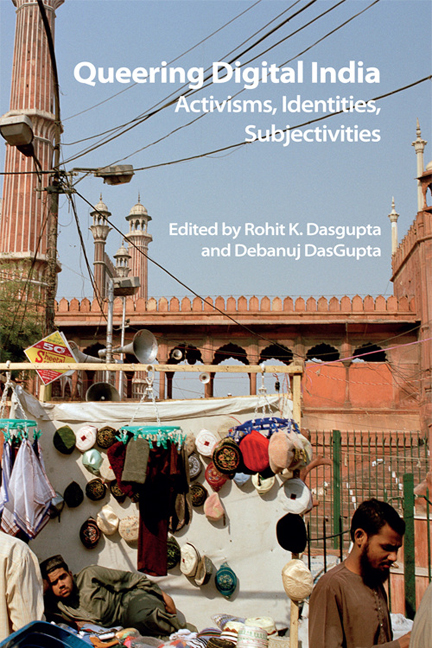8 - ‘Bitch, don’t be a lesbian’: Selfies and Same-Sex Desire
Published online by Cambridge University Press: 28 April 2021
Summary
Self-representation on social networking websites such as Facebook and Twitter is increasingly important to young people's conception of themselves as well as of a sociality to which they belong. As scholars like Boellstorff (2008) and, much earlier, Appadurai (1996) have shown, the media have significantly widened the options for the lives people live, allowing the making of new mediated selves that might not have been possible before. In this essay, I examine practices through which young women pose for, take and upload selfies, as well as their engagement with raunchy YouTube videos as sites where forms of same-sex play come to materialise. In the literature on young men, a substantial scholarship now conceptualises such desires in the idiom of masti or play among friends: an idiom that is revealing of the ways in which the sexual is circulated in this context (Cohen 1995; Katyal 2013). Indeed, this literature shows that these idioms of playfulness significantly disturb universalist Western notions of LGBT identification and rather open up a field where sexual practice is more multivalent and less tethered to identity.
This remains, however, a literature predominantly about men and located in ‘men's spaces’: public areas where men might meet, and in the context of male homosociality. As Dave (2012) shows, samesex desiring women not only remain an under-studied community, the practices of sexual play among women are also located in more private places – within all-female hostels, in beauty parlours and massage therapy rooms. In her analysis of Deepa Mehta's controversial film about same-sex desire, Fire, Gayatri Gopinath (1998) similarly shows the importance of studying practices of same-sex desire that exceed registers of public visibility under the LGBT rubric. She positions such studies as corrective to a developmentalist narrative where desire between women carries value only where it is publicly visible and coalesces under the label of ‘lesbian’. A reading of young women's social media use does the same thing: it offers narratives of same-sex desire that exceed and run a different course to modern ‘LGBTQ’ desires and readings of sexuality.
- Type
- Chapter
- Information
- Queering Digital IndiaActivisms, Identities, Subjectivities, pp. 151 - 164Publisher: Edinburgh University PressPrint publication year: 2018



